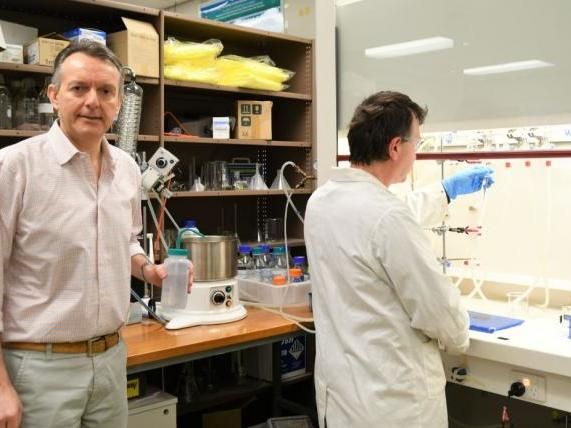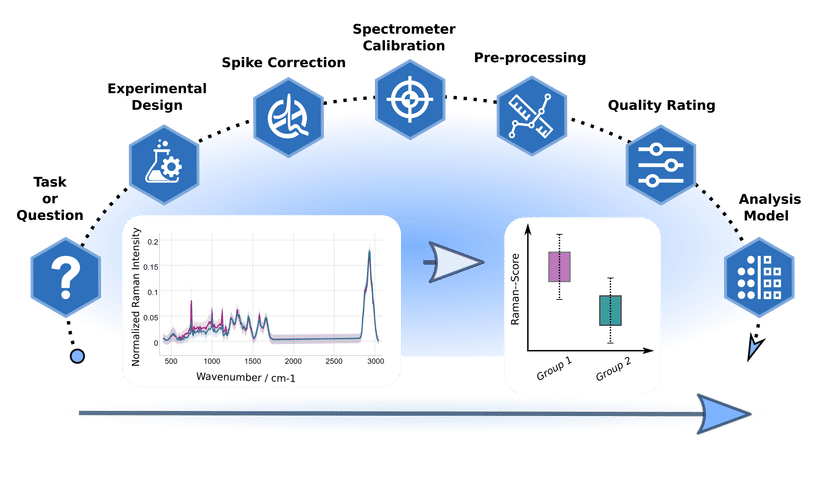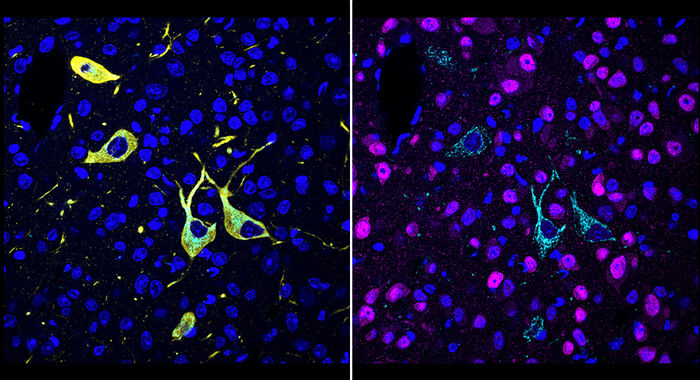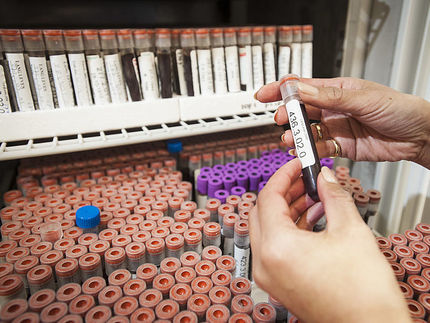New biomarker for dementia diagnosis
Promising results warrants further investigation
Medical researchers in the UK and Australia have identified a new marker which could support the search for novel preventative and therapeutic treatments for dementia.

Professor Arduino Mangoni, Head of Clinical Pharmacology at Flinders University, in his research laboratory in South Australia
Flinders University
In an innovative new study, coordinated by Flinders University and University of Aberdeen, the researchers investigated the role of asymmetric dimethylarginine (ADMA), a blood marker associated with atherosclerosis and cardiovascular disease in epidemiological studies, on temporal changes in cognition in an established cohort of human ageing (the 1936 Aberdeen Birth Cohort).
Unlike other human ageing study cohorts, the 1936 Aberdeen Birth Cohort participants also underwent childhood intelligence tests at age 11, a key predictor of intelligence and health in old age.
Research has primarily focused on a set of abnormalities found in diseased brains. However, observational studies and clinical trials targeting these alterations have been disappointing, suggesting the urgent need to better understand the causes of dementia and identify novel markers of disease.
In the first longitudinal study, ADMA levels measured in the year 2000 (at participants' age 63 years) was associated with decline in cognitive performance assessments after four years, says Flinders University Professor Arduino Mangoni.
"Therefore the results of this study suggest, that ADMA, an easily measurable marker of atherosclerosis and cardiovascular risk, could be an early indicator of cognitive decline in old age - and possibly dementia," says Professor Mangoni, Head of Clinical Pharmacology at Flinders University.
Alzheimer's disease (AD), a neurodegenerative disorder characterised by a rapid decline in cognition and significant disability in old age, currently affects more than 342,000 Australians. This number is expected to increase to 400,000 in less than a decade.
The causes of late onset AD are largely unknown and despite extensive research, there is still no clear consensus on robust biomarkers to predict disease onset and progression and the response to therapies.
UK researcher Dr Deborah Malden says the results of the new study should be approached with caution and need further extensive investigations.
"We should be cautious about emphasising the results with the 93 participants' results here," she says.
"We would know much more after repeating this study in a large-scale cohort, potentially tens of thousands of individuals, and perhaps a genetic MR (Mendelian randomization) study," Dr Malden says.
Nevertheless, if the initial study findings are verified in large-scale testing, researchers hope the findings could pave the way for population-wide dementia risk stratification and perhaps future development of therapeutic strategies to reduce ADMA levels and/or slow the progression of cognitive decline in old age.
Other news from the department science

Get the life science industry in your inbox
By submitting this form you agree that LUMITOS AG will send you the newsletter(s) selected above by email. Your data will not be passed on to third parties. Your data will be stored and processed in accordance with our data protection regulations. LUMITOS may contact you by email for the purpose of advertising or market and opinion surveys. You can revoke your consent at any time without giving reasons to LUMITOS AG, Ernst-Augustin-Str. 2, 12489 Berlin, Germany or by e-mail at revoke@lumitos.com with effect for the future. In addition, each email contains a link to unsubscribe from the corresponding newsletter.
Most read news
More news from our other portals
Last viewed contents
Vantia Therapeutics appoints Andrew Crockett as Chief Executive Officer
Dynamix Pharmaceuticals Completes a $10M Series A Financing - Signs a Collaboration Deal with Teva Pharmaceutical Industries
Scientists identify how a novel class of antibodies inhibits HIV infection
Alfred_Sommer_(ophthalmologist)
Eli_Lilly_and_Company
Evolva participates in food ingredient research initiative

CureVac Receives Positive Validity Decision from European Patent Office in Litigation Against BioNTech SE

Artificial intelligence for better diagnostics - Standardized methods facilitate the evaluation of Raman spectra



















































